Pakistan Seeks Energy Loan Restructuring from China
By Rediff Money Desk, Islamabad Jul 27, 2024 16:59
Pakistan's finance and energy ministers are in Beijing to negotiate debt rescheduling for CPEC energy projects, amid concerns over China's reluctance and potential impact on IMF bailout.
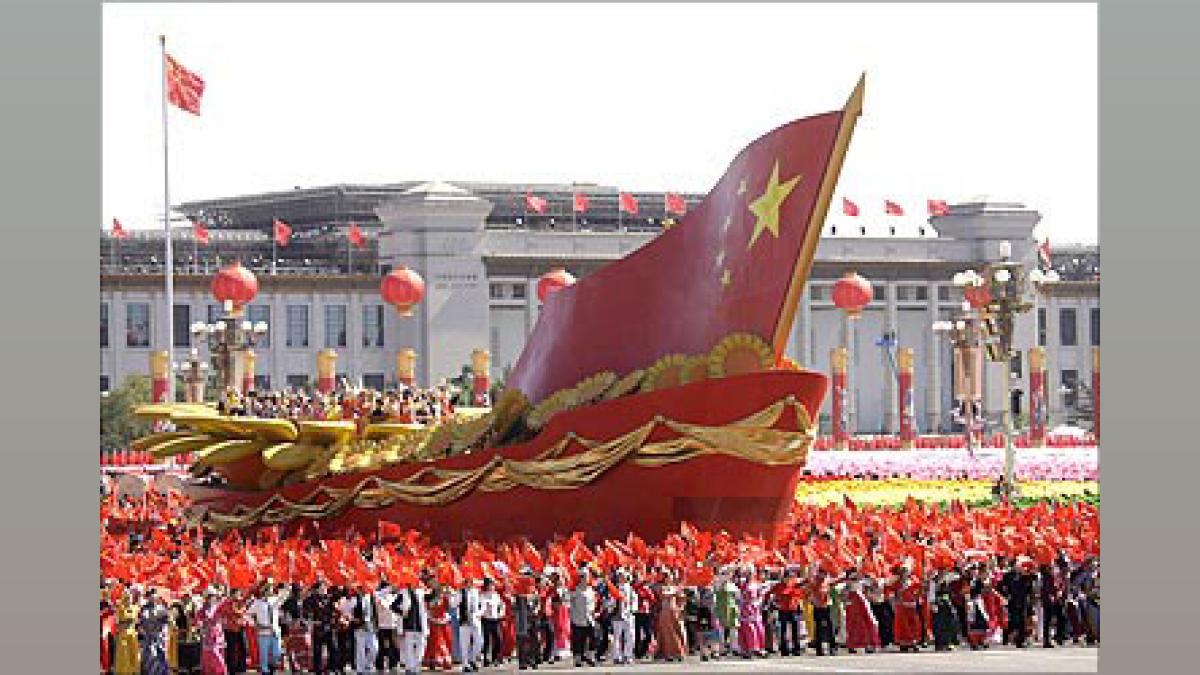
Islamabad/Karachi, Jul 27 (PTI) Two key Pakistani ministers are camping in Beijing to discuss the cash-strapped country's request for rescheduling its outstanding debts with China linked to the ambitious China-Pakistan Economic Corridor.
Muhammad Aurangzeb, Pakistan's Minister for Finance and Revenue, and Sardar Awais Ahmad Khan Laghari, the Minister for Energy (Power Division) are both in Beijing for the last three days, media reports said here on Saturday.
The duo is meeting one authority and agency after the other, including Pan Gongsheng, Governor People's Bank of China (PBoC), and Cao Yuanyuan, Deputy Secretary-General of National Association of Financial Market Institutional Investors (NAFMII).
The concern is that China was initially reluctant to discuss the issue, leading to a delayed visit, signalling their disagreement with Pakistan over talks related to energy loans, media reports said.
Pakistan formally requested China on Thursday to reschedule its debts, with outstanding dues for China-Pakistan Economic Corridor (CPEC) power projects increasing by 44 per cent to Rs 401 billion by the end of the last fiscal year, The Express Tribune newspaper said.
According to power ministry documents, as of June 2024, the outstanding dues to Chinese power plants surged to Rs 401 billion, up Rs 122 billion or 44 per cent from the previous year.
These unpaid debts, in violation of the 2015 CPEC Energy Framework Agreement, are hindering further financial and commercial relations between the two countries, the newspaper added.
The Pakistani officials requested an eight-year extension for repaying energy debt, converting US dollar-based interest payments to Chinese currency, and reducing overall interest rates for both CPEC and non-CPEC Chinese-funded projects, according to ministry officials.
These measures aim to lower energy costs and secure International Monetary Fund (IMF) approval for a USD 7 billion bailout package.
The Dawn newspaper said concerns are rising in Pakistan's financial sector over the negotiations with Chinese authorities over the energy sector loans.
Stakeholders are anxious about the talks' outcome which could have vital repercussions for foreign investment and exchange rate stability if the talks are not successful as desired by Pakistan, it added.
We believe China will not outright reject Pakistan's request to reschedule energy sector loans, but the final outcome appears bleak, a senior banker told the newspaper.
While Chinese investments have declined, they remain the largest in FY24. Combining investments from China and Hong Kong, foreign direct investment (FDI) amounted to nearly half of Pakistan's total inflows, which increased by 17 per cent in FY24, The Dawn said.
Our dependency on China has increased as we negotiate to reschedule USD 15 billion in energy sector loans, receive the highest FDI from China, and rely on them as our largest trade partner, another banker S S Iqbal told the newspaper.
The International Monetary Fund (IMF) has also pressed for structural changes during the talks for power sector debt relief.
This USD 2 billion loan that PBoC has agreed in March 2018 to give to the State Bank of Pakistan to shore up Pakistan's foreign exchange reserves has been rolled over annually since 2018, with the most recent rollover occurring on February 29, 2024, the daily said, adding, The loan was due in March and was extended for one year.
Iqbal pointed out that even while China supported Pakistan's reserves, the State Bank stopped a USD 1.8 billion profit outflow to Chinese investors in FY24 and asked: How can the Chinese sit calm and cool with this kind of treatment?
The Express Tribune said the Finance Ministry announced all the meetings that the minister duo held in Beijing. However, the Finance Ministry did not confirm whether China agreed to extend the loans or reduce the interest rates, which are critical for easing Pakistan's balance of payments pressure and reducing energy costs, it added.
Pakistan has breached CPEC agreements by failing to make timely payments for power purchased from Chinese plants. This has made China Export and Credit Insurance Corp (SINOSURE) hesitant to fund a new coal-fired power plant and two hydroelectric plants, the report added.
Muhammad Aurangzeb, Pakistan's Minister for Finance and Revenue, and Sardar Awais Ahmad Khan Laghari, the Minister for Energy (Power Division) are both in Beijing for the last three days, media reports said here on Saturday.
The duo is meeting one authority and agency after the other, including Pan Gongsheng, Governor People's Bank of China (PBoC), and Cao Yuanyuan, Deputy Secretary-General of National Association of Financial Market Institutional Investors (NAFMII).
The concern is that China was initially reluctant to discuss the issue, leading to a delayed visit, signalling their disagreement with Pakistan over talks related to energy loans, media reports said.
Pakistan formally requested China on Thursday to reschedule its debts, with outstanding dues for China-Pakistan Economic Corridor (CPEC) power projects increasing by 44 per cent to Rs 401 billion by the end of the last fiscal year, The Express Tribune newspaper said.
According to power ministry documents, as of June 2024, the outstanding dues to Chinese power plants surged to Rs 401 billion, up Rs 122 billion or 44 per cent from the previous year.
These unpaid debts, in violation of the 2015 CPEC Energy Framework Agreement, are hindering further financial and commercial relations between the two countries, the newspaper added.
The Pakistani officials requested an eight-year extension for repaying energy debt, converting US dollar-based interest payments to Chinese currency, and reducing overall interest rates for both CPEC and non-CPEC Chinese-funded projects, according to ministry officials.
These measures aim to lower energy costs and secure International Monetary Fund (IMF) approval for a USD 7 billion bailout package.
The Dawn newspaper said concerns are rising in Pakistan's financial sector over the negotiations with Chinese authorities over the energy sector loans.
Stakeholders are anxious about the talks' outcome which could have vital repercussions for foreign investment and exchange rate stability if the talks are not successful as desired by Pakistan, it added.
We believe China will not outright reject Pakistan's request to reschedule energy sector loans, but the final outcome appears bleak, a senior banker told the newspaper.
While Chinese investments have declined, they remain the largest in FY24. Combining investments from China and Hong Kong, foreign direct investment (FDI) amounted to nearly half of Pakistan's total inflows, which increased by 17 per cent in FY24, The Dawn said.
Our dependency on China has increased as we negotiate to reschedule USD 15 billion in energy sector loans, receive the highest FDI from China, and rely on them as our largest trade partner, another banker S S Iqbal told the newspaper.
The International Monetary Fund (IMF) has also pressed for structural changes during the talks for power sector debt relief.
This USD 2 billion loan that PBoC has agreed in March 2018 to give to the State Bank of Pakistan to shore up Pakistan's foreign exchange reserves has been rolled over annually since 2018, with the most recent rollover occurring on February 29, 2024, the daily said, adding, The loan was due in March and was extended for one year.
Iqbal pointed out that even while China supported Pakistan's reserves, the State Bank stopped a USD 1.8 billion profit outflow to Chinese investors in FY24 and asked: How can the Chinese sit calm and cool with this kind of treatment?
The Express Tribune said the Finance Ministry announced all the meetings that the minister duo held in Beijing. However, the Finance Ministry did not confirm whether China agreed to extend the loans or reduce the interest rates, which are critical for easing Pakistan's balance of payments pressure and reducing energy costs, it added.
Pakistan has breached CPEC agreements by failing to make timely payments for power purchased from Chinese plants. This has made China Export and Credit Insurance Corp (SINOSURE) hesitant to fund a new coal-fired power plant and two hydroelectric plants, the report added.
Source: PTI
Read More On:
DISCLAIMER - This article is from a syndicated feed. The original source is responsible for accuracy, views & content ownership. Views expressed may not reflect those of rediff.com India Limited.
You May Like To Read
TODAY'S MOST TRADED COMPANIES
- Company Name
- Price
- Volume
- Vodafone Idea L
- 7.45 ( -2.87)
- 32142272
- Srestha Finvest
- 0.69 (+ 1.47)
- 30936208
- Suzlon Energy Ltd.
- 54.60 ( -8.07)
- 25525100
- GTL Infrastructure
- 2.03 ( -3.79)
- 12441892
- AvanceTechnologies
- 0.92 ( -3.16)
- 10206370
MORE NEWS

Silver Prices Surge on Spot Demand - PTI
Silver prices jumped by Rs 633 to Rs 89,960 per kilogram on the Multi Commodity...

LTIMindtree Expands US Presence with Houston...
LTIMindtree opens new facility in Houston, focusing on AI, digital transformation, and...

Swiggy CEO: Expecting Solid Growth in Next 3-5...
Swiggy CEO Sriharsha Majety expects strong growth in the next 3-5 years, driven by...




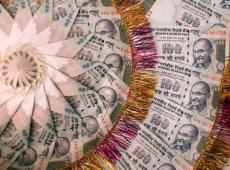

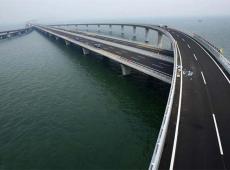
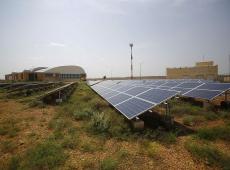
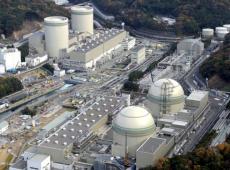
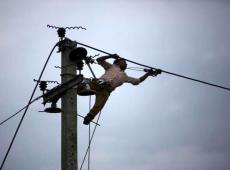
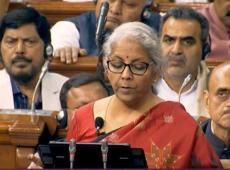
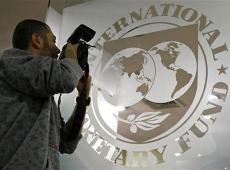
 © 2024 Rediff.com India Limited. All rights reserved.
© 2024 Rediff.com India Limited. All rights reserved.